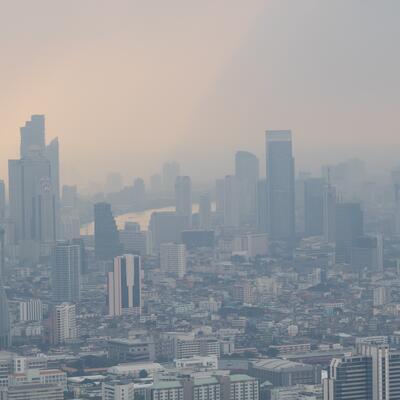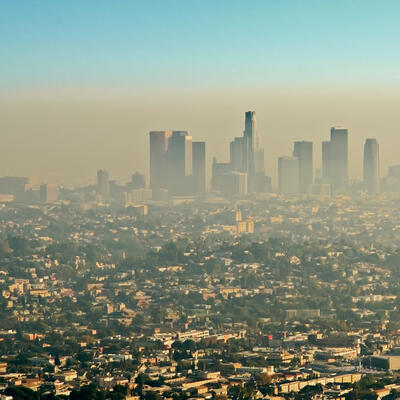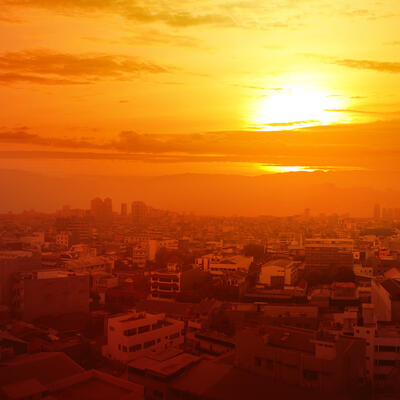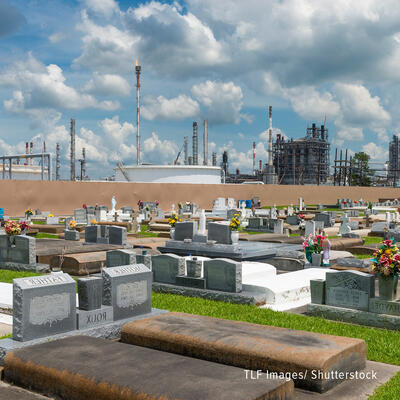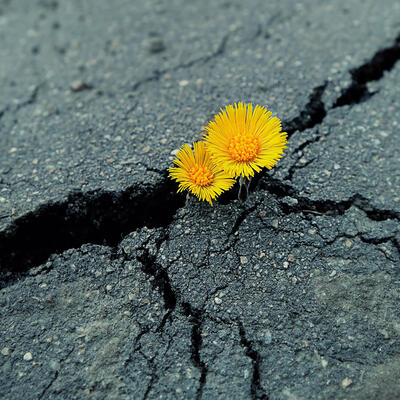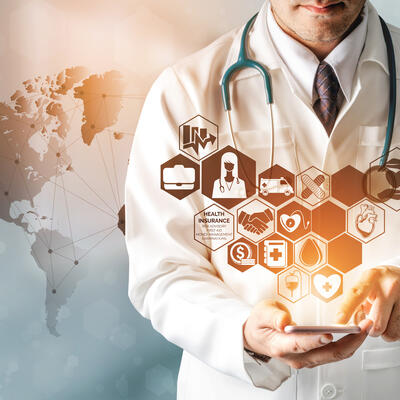
The Health Hazards of One Degree
Guests
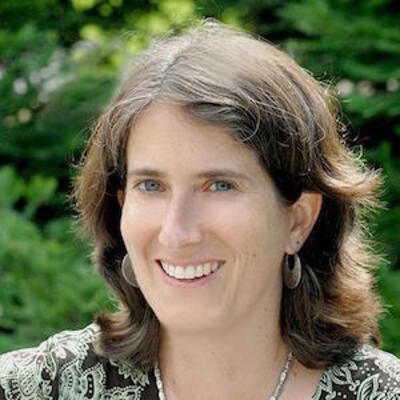
Rachel Morello-Frosch
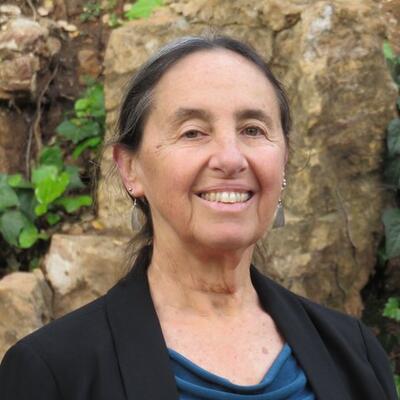
Linda Rudolph
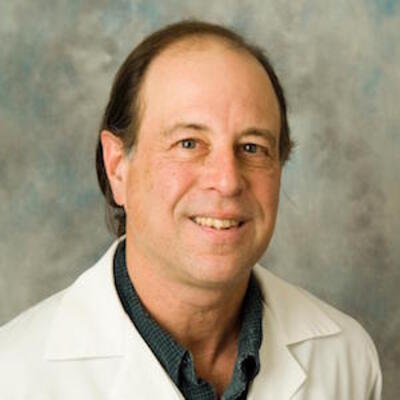
Robert Gould
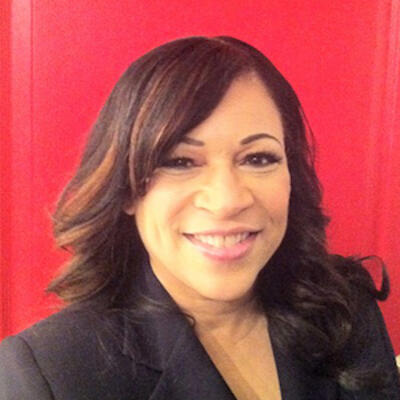
Katrina Peters
Summary
Global warming is hitting closer to home than we think, from a neighborhood child gasping with asthma to a parent collapsing from heatstroke. These realities led U.S. Surgeon General Vivek Murthy to assert in April that climate change presents the most complex threat to public health in U.S. history.
Rachel Morello-Frosch, Professor, University of California, Berkeley
Linda Rudolph, Director, Center for Climate Change and Health, Public Health Institute
Robert Gould, Director of Health Professional Outreach and Education, Program on Reproductive Health and the Environment, UCSF
Katrina Peters, Associate Clinical Professor of Psychiatry, UCSF
This program was recorded in front of a live audience at the Commonwealth Club of California on April 5, 2016
Full Transcript
Greg Dalton: Mosquitoes anyone? I'm Greg Dalton. On the show today we’ll examine how global warming could impact your personal health more than your favorite cocktail or that decadent dessert that you love. Mention global warming to your friends and the images that come to mind for many people, melting glaciers and scrawny polar bears, maybe rising seas in faraway lands. A growing number of doctors say you should also think of the Zika virus, a child in your neighborhood, gasping with asthma or your parent collapsing from heatstroke. In early April, US Surgeon General Vivek Murthy said that climate change presents the most complex threat to public health in US history. Over the next hour we’ll learn about the connection between warming temperatures and your health from doctors joining us today at the Commonwealth Club in San Francisco.
Katrina Peters is a psychiatrist at San Francisco General Hospital, and Associate Clinical Professor of Psychiatry at UCSF. Robert Gould is a pathologist and president of the San Francisco Chapter of Physicians for Social Responsibility and Rachel Morello is a Professor of Environmental Science Policy and Management at the UC Berkeley School of Public Health. Linda Rudolph is Director of the Center for Climate Change and Health at the Public Health Institute. Please welcome them to Climate One.
[Applause]
Linda Rudolph. Let's begin with you; you’ve been doing this working on climate and health a long time before a lot of people were paying attention, connecting those dots. Tell us how you got into it.
Linda Rudolph: I was working as the health officer and public health director for the city of Berkeley. And the mayor's office of sustainability asked me to talk at a public forum about climate change and health. I was mainly focused on issues around health equity and the big differences in life expectancy for people in South Berkeley, particularly the African-American community. And when I started looking at climate change I was really alarmed at how climate change would exacerbate the very same threats that we were concerned about as public health officials and also really, really struck by how many of the actions that we could take to reduce our climate pollution would also really be huge boosts to the health of the people in our community. That got me going.
Greg Dalton: Bob Gould also you’ve been at this a long time. First with nuclear Armageddon I guess, Physicians for Social Responsibility likes to deal with this end of the world kind of things; nuclear Armageddon and climate change. Tell us how you got into it.
Robert Gould: Well that was really the connection Greg, I mean in terms of PSR as many people know here since the early 1960s has been dealing with and continues to deal very strongly with that threat to human survival. But in the early 1990s, a discussion that took place among our leadership, basically kicked off by some of the PSR founder such as Alexander Leaf and others in the Boston area, raised the question that we really needed to extend our work to the major environmental health issues facing us and in particular global warming. So it's really been since the early 1990s that PSR and myself through that had been working about global warming and related issues of environmental degradation that come in the wake of that.
Greg Dalton: Rachel Morello, how did you get into this?
Rachel Morello: I got into this and part because communities that I’ve been working with on environmental health issues locally came to me and they said, you know, there’s a lot of discussion about climate change in the international context. Like how is this impacting developing nations, island nations. But there’s not a lot of talk about climate justice questions within the United States and the ways in which climate change is going to disproportionately affect poor people and people of color here and we want your help to sort of get that and have that equity question be part of the climate change conversation.
Greg Dalton: Katrina Peters, you're newer to the conversation. What brought you into climate consciousness?
Katrina Peters: Yes, I am probably the newest member for the people who are on the stage here. I had the wonderful opportunity to have been on a panel with Linda back last year with a network of ethnic physician organizations which is part of the California Medical Association and we were at a conference. And I, like many other people thought that climate change was going to happen and that's what I was well, to talk about. But after I listened I realized that it had happened.
And in fact, not only had my patients had problems with health problems that developed from climate change, I personally had been affected by climate change and did not realize it because I didn't realize the association. So after that I became part of the group who wanted to share this information with the rest of my physician colleagues because I really don't think we know that much as been talked about the health effects of climate change and how they are going to impact your health, and most physicians don't know it yet either. So it’s my goal to try to see if I can help the conversation so that we can all do a little better.
Greg Dalton: Linda Rudolph, what are the biggest threats climate change, people think about polar bears, glaciers, maybe sea level rise don’t often think about public or personal health. What should we be concerned about here in California?
Linda Rudolph: Well, from my view climate change really is all about us. And it's an existential threat because climate change threatens our air, our water, our food, our shelter and our security. And the effects are myriad ranging from the direct impacts like heat illness in a heat wave or injuries in a big flood or hurricane. And then there's all sorts of indirect effects like increasing air pollution from warming temperatures or many, many different impacts on our food supply, ranging from declines in crop yield rising food prices, things like changes in where we find dengue fever or the spread of West Nile virus northward or lengthening of the allergy season. Katrina can talk about the mental health impacts. But really, there is -- what climate change does is it exacerbates our existing health challenges, and it poses risks of new emerging challenges.
Greg Dalton: Bob Gould, the White House recently early April came out with a big report the Surgeon General the president's national science advisor kind of laid out what's the risk for American health, what do they say?
Robert Gould: Well in many ways it mirrors what Linda just spoke about is that, you know, we've been aware they illustrated and the assessment that came out in early April manifold threats seven major threats that Linda has basically covered that range from heat extremes to new concerns about changes in vector patterns the insects and other organisms that carry diseases such as Zika virus as well that we’re seeing issues of that arising in Brazil and other countries are the sort of things we need to think about as previously tropical diseases can spread to our climate, such as we've witnessed with West Nile. We also have to be concerned about the waterborne diseases in terms of a projected increase in cholera as well as what we’ve already seen here in California manifest by algal blooms which have here, we feel it at the level of impacting our crab season, but this is just one sign of what of the manifold things that we face.
Greg Dalton: Rachel Morello, crab affects people who can afford delicious crab. How about people who can’t afford crab, what are the vulnerable populations in the state and how are they affected by climate change?
Rachel Morello: Well, the vulnerable populations are often people for example, who work in occupations where they don't have control over their conditions of their workplace. So think about people who are in construction, farmworkers who are working under very extremely harsh conditions under normal weather patterns. And then during the summer when you have these heat waves more often than not the people that are landing in the emergency rooms and who are dying on the job are people in those kinds of occupations. I think the other kind of indirect health impact but I think one that’s really one to keep in mind is sort of the economic dislocation that happens because of climate change. So for example certain industries like the tourist industry, if we think about what happened to the ski season last year which basically pretty much disappeared because there were no snow in the mountains. Think about the people who work on those industries, mostly low-income people of color in the service industry, the hotel industry. Their jobs literally vaporize during those kinds of weather events; they’re very vulnerable, kind of seasonal jobs.
Same thing in the field of agriculture; when production levels go down, growers let go of workers and so people's livelihoods are literally at stake. And then I think the last thing to really consider is that very often the prices of our basic necessities go up. And so for people like you and I, you know, we complain about higher energy bills or higher food bills, you know, we pay more for milk or eggs, but if you think about a low-income household that pays a very large proportion of their salary to buy food every month, that’s a huge hit.
Greg Dalton: Linda Rudolph, what is the state doing, Cal/OSHA others to protect people? You think about farmworkers out there; the heat we’ve had recently is just scorching even in the winter. So what is the state of California doing to protect construction workers, farmworkers, people who are outside in this increasing heat?
Linda Rudolph: Cal/OSHA unlike the federal OSHA does have a heat standard to protect workers. And they recently amended that to make sure that people that are in these dangerous occupations have access to shade, access to water, access to rest breaks. So we hope that that will put an end to the heat deaths that we've seen, particularly in agricultural workers every summer.
Greg Dalton: Bob Gould, there's been a lot of fires in California lately and what impact does that have both on local populations of people who are, you know, where the smoke may drift?
Robert Gould: Well, I mean that adds to what we would expect from the same assessment in terms of worsening air conditions overall, and in terms of generation of smog and ground-level ozone. But in terms of the wildfires they add an enormous amount of particulate matter as well so we would expect significant deleterious effects on respiratory health and cardiovascular health due to those particles.
Greg Dalton: Katrina Peters, we heard earlier about dislocation, stress, et cetera. It sounds like that there is, you know, think about I never thought about before, ski lift workers who suddenly don't have a job or people who have to move because of the fire, that sort of thing. How can you assess if someone comes in that the mental health impact is connected to climate or does it even matter?
Katrina Peters: Well, I do think it matters because if you’re gonna come up with a solution you need to understand the sources of the problem. I think many of us are aware that there are individuals let’s say for example who are displaced from Hurricane Katrina. There are individuals who’ve been displaced with fires. There's been individuals who have had to move because for example, in some of the small towns in the Central Valley of California their wells have dried up. So people are very distressed in these things and they may tend to think sort of in a fatalistic way; I don't know why this happened, you know, why am I so unlucky, why are things they are. Where in fact, even though it may be a difficult situation I think if there were a larger number of people who understood that many of the things that are happening are not just arbitrary, that these are things that are connected to the great climate changes that we see, and as we understand that we are better able to come up with solutions both individually and in our communities.
Greg Dalton: It’s also tough though because we’re all culpable, we’re all complicit, we’re all part of the problem. So if you tell me I walk into the ER and say well okay that I'm part of the reason that this thing bad thing happened to me that brings on guilt and like what I do with that? And rather than like, oh someone ran me over some other person did some harm to me and I'm an innocent victim, we’re all complicit in this story.
Katrina Peters: Well, there's complicit and then there’s blame. So there is a part where we can accept for example, the person who got run over well, maybe they should have crossed on the light but, you know, you’re not really trying to berate them about it. But for them to be able to not do it again they have to understand how they got in a situation.
So I think the parts that we play and we play a role individually, but we also play a community and a group role. And again until we kind of understand what those factors are and how to mitigate them then we're sort of stuck with doing the same thing over.
Greg Dalton: Rachel Morello, back on fires, there’s a study that in Los Angeles and Southern California fires and I believe 2003 that shows some correlation with birth rate. Tell us about what how fires can affect infants?
Rachel Morello: Yeah, so there’s been a lot of interesting work done about how wildfires, for example, increase the number of visits to emergency rooms because of respiratory effects. And that’s sort of immediate and acute and you see those blips and you know that there’s a relationship. But what we wanted to look at in this study was in the 2003 Southern California wildfire which is huge and lasted a really long time. What was the impact among women who are pregnant during that time in the wildfire in that region? And what we found was that for women who were pregnant during the time that the fire was burning on average they gave birth to slightly lower birth weight babies. So from a clinical perspective, you know, a few grams may not make a big difference in terms of the individual. But when you're talking about a huge population of people who are exposed to wildfire smoke and everybody moves down just a little bit in terms of birth weight, all of a sudden increase the number potentially of women who are giving birth to low birth weight babies.
Greg Dalton: And why does low birth weight matter so much?
Rachel Morello: We care about low birth weight because it's very predictive of health later on in life. So babies that are born of low birth weight are more likely to have a chronic health problems later on in childhood and as well as in adulthood. It's also a predictor of early neonatal mortality if it’s extremely low birth weight. So it's definitely a very important public health indicator.
Greg Dalton: Linda Rudolph, what cities, counties, states are doing a good job educating the public healthcare professionals about the climate connection and getting ready for this, what's happening now?
Linda Rudolph: In California cities and counties and regions all over the state are taking climate change very seriously and we’re starting to really see that nationwide as well. The state has very robust goals for reducing climate change emissions and now we’re starting to see changes in communities to make it easier for people to walk and bike and take public transit so that we reduce our carbon pollution from automobiles. San Francisco's been looking, you know, also preparing for what we know will come as results of climate change mapping where neighborhoods are at risk of heat or flooding, San Francisco has done a lot of that. Los Angeles is looking at how to decide which neighborhood should really be a focus for planting trees to reduce the urban heat island. Los Angeles city also has an ordinance to require cool roofs again to reduce the impact of the urban heat island.
I think, I want to get back to your comment about we’re all complicit. I think one of the most important things that we can do is really look at the ways that we create environments in our communities that make it harder for us to take the actions that we know that we should and address those environmental shapers of our behavior. For example, by creating more biking and walking, because we know that that's one of the most effective ways to improve our health, reduce all sorts of chronic diseases and reduce greenhouse gas emissions.
Greg Dalton: I read a story in the Los Angeles Times recently that noted that the California Environmental Quality Act is an obstacle to getting bike lanes implemented because if you want to add a bike lane you have to do a big environmental impact study, which can be expensive. And, you know, one of the great ironies is that this environmental law is preventing healthy things such as bike lanes. So Linda Rudolph, do you think that that law ought to be tweaked? That’s a holy, holy law to environmentalists in the state.
Linda Rudolph: I think I can't speak to that but I do know that the California transportation agency really is committed to increasing walking and biking in Los Angeles. Los Angeles Metro has now put a proposal out to raise about $40 billion dollars over the next -- or maybe even more. But billions of dollars for changing the way people move in Los Angeles and increasing public transit and walking and biking. So regardless of CEQA I think that there is a lot that we can do in every community across the country to really shift that dynamic. And then of course we also need to pay attention to our big policies like the clean power plan and support efforts to really shift from dirty coal energy to clean, renewable energy, which would also reduce air pollution as others have said.
Greg Dalton: Rachel Morello, for a long time public advocates, doctors have been saying Americans, you know, eat better, exercise more, et cetera bike and walk to work. Hasn't done so much; is it really gonna work now?
Rachel Morello: I think if people are given the opportunities to do it and you actually build the transportation infrastructure that's user-friendly, I think people will take advantage of those opportunities. I think some of the biggest challenges that to do those things right now in many places is very difficult and that's why people don't do it. But I think if you create the environmental conditions where it's easier to take public transit and take the bus than it is to drive and sit in traffic people will make the right decision.
Greg Dalton: Let's talk about the money to do all these things. This takes some money, Linda Rudolph the cap and trade money, there's couple billion dollars coming from the state now putting a price on carbon pollution. Some of that is going toward disadvantaged communities; how much of that is going toward public health?
Linda Rudolph: The hope is that we can prioritize the solutions that benefit both the climate and community health. And many of the programs that cap and trade is funding are in fact doing that. You know, I think we need, we don't have the dollars that we need to do climate adaptation. Those dollars all go into reducing greenhouse gas emissions, which is critical. But we ought to be looking at, you know, removing the billions of dollars that we currently subsidize the fossil fuel industry and thinking about how to allocate those dollars differently. We ought to be thinking about using our existing funding streams in a way that's smarter from a climate health and equity perspective. So we put lots and lots of money every year into fixing roads or building new roads or building new buildings and all of that can be done in a way that also really contributes to our efforts to address climate change.
Greg Dalton: We actually don’t spend enough, you know, it’s another discussion we don't spend enough on our roads and things like that.
If you're just joining us, we’re talking about public health, at Climate One. Linda Rudolph from the Public Health Institute. Rachel Morello is professor at the UC Berkeley School of Public Health. Katrina Peters with San Francisco General Hospital and Bob Gould with Physicians for Social Responsibility. I'm Greg Dalton.
I'd like to go to our lightning round and ask you some quick questions here to pick up the pace a little bit, change up the pace a little bit. This is for yes or no, for Bob Gould: Tom Wolfe was correct when he wrote in The Right Stuff that fighter pilot egos are second only to the outsized egos of surgeons, yes or no?
[Laughter]
Robert Gould: Should I comment yes or no?
Greg Dalton: Yes.
Robert Gould: Yes.
Greg Dalton: Linda Rudolph, knowing what you know about the health impacts of a scorched, hotter earth, you would buy property today near a lake or stream because of mosquitoes, standing water?
Linda Rudolph: Yes, but maybe not next to the ocean.
Greg Dalton: Oh, interesting. Okay. Take the sea level rise over the mosquitoes. Rachel Morello, new and remodeled homes in San Francisco will start installing air-conditioning in the next five years. Most homes in San Francisco don't have air-conditioning; you think air-conditioning is gonna be a new fixture in San Francisco homes?
Rachel Morello: No.
Greg Dalton: Katrina Peters, hospitals serve some of the worst food in the world.
Katrina Peters: That’s true.
Greg Dalton: But now that it's the Zuckerberg San Francisco General Hospital, is the food getting better over there after that $75 million?
Katrina Peters: Well, the actual new hospital doesn’t open until next month. So we’ve got the same level of cuisine.
[Laughter]
Greg Dalton: Bob Gould, most MDs over the age of 40 don't know squat about nutrition.
Robert Gould: Well, you know, those of us who went to medical school years ago didn't really learn much about nutrition and didn't learn much about environmental health. So this is a real challenge. So I would say true.
Greg Dalton: Linda Rudolph, physically active teenagers ages 15 to 19 are at greatest risk for heat -related illness. Teenagers 15 to 19 are --
Linda Rudolph: No.
Greg Dalton: No. The National Institute of Environmental Health said they were because they don't drink water, kids. Katrina Peters, you’re a psychiatrist; humanity is doomed?
[Laughter]
Katrina Peters: Always, but there's always hope and a silver lining somewhere.
Greg Dalton: Last one Rachel Morello, the Commonwealth Club is constructing a new building on the Embarcadero. We should install a fire hydrant outside so guests can open it up and frolic in the streets after hot events on hot days.
Rachel Morello: I think it’s a bad idea.
[Laughter]
Greg Dalton: Okay that ends our --
Rachel Morello: We’re in a drought.
Greg Dalton: Oh yeah, there’s the drought and then the sea, well, maybe the sea level rise will come up high enough. That ends our lighting round. How do you think they did, I think they did pretty well. Let’s give them a --
[Applause]
[CLIMATE ONE MINUTE]
Announcer: And now, here’s a Climate One minute.
When it comes to understanding – and acknowledging -- the impact of climate change on our health, we’ve come a long way. So says Richard Jackson, former Director of Environmental Health at the Centers for Disease Control. When he visited Climate One several years ago, he recalled that during his tenure at the CDC, the topic was strictly taboo.
Richard Jackson: You know, I was in a – above me were all political people after year 2000. And we were, frankly, not allowed to speak about climate change even though we were the CDC. And we were under orders not to speak about it. One of my colleagues actually got fired for asserting that climate change was a public health issue. That has gone away. And I think the reality is, science is best when people can argue about it. And to make it illegal or wrong for someone to speak about something they're worried about from a public policy standpoint is outrageous to me.
Announcer: Richard Jackson, of UCLA’s Fielding School of Public Health, speaking at Climate One in 2013. Now, back to Greg Dalton and his guests at the Commonwealth Club.
[END CLIMATE ONE MINUTE]
Greg Dalton: So Bob Gould, I wanna tell you about a visit coincidentally today that I went to an orthopedist. I'm training for a 300 mile climate rides. So I'm doing a big ride on the California coast. My knees are a little achy, I went in to make sure I’m not trashing my knees and he said “Your knees are okay, you’re just 52 years old.” At the end I said “Doctor, what do you think about climate change as a health issue?”
And he said “Actually, our bones like it when it's warmer so it may be better.” And then he said “We’re okay until the future when we’ll all be swimming around.” So here we have a very sophisticated MD who said it might be better for his particular specialty and he put climate change in the future rather than today. So how does this typify the challenge of MD education and awareness?
Robert Gould: Well I mean, I honestly don't have expertise on the impact on yours or other people's bones. It's, that's a new one for me, but I think--
Greg Dalton: Old people don’t like cold in general, right so.
Robert Gould: Yeah, but I mean there is a real challenge but we've seen over the last 20 years where it’s become easier to be able to engage physicians on these issues and a lot of that has been aided, I mean both Katrina and I work within the California Medical Association for example, and we’ve passed policies supporting educational efforts among physicians to deal with this issue as well as to support strong climate change reductions. And a lot of the initiatives that we've had in local health professional societies, including those of physicians, have then moved to the American Medical Association. So back in 2008 they took a very strong position on that physicians should be aware of climate change we have called on that was our responsibility to educate our colleagues about this.
Linda Rudolph: Can I jump in?
Greg Dalton: Sure.
Linda Rudolph: There's been three recent surveys of physicians across the United States and all three of those survey showed that over 60% of physicians say that they are seeing the impacts of climate change in their patients now. And, you know, depending on the region that they’re in that's either due to more asthma associated with more air pollution, more allergies because of the lengthening and increase in intensity of the pollen production or because of the impacts of these super storms that are related to climate change like Hurricane Katrina and Superstorm Sandy.
So your orthopedist notwithstanding, I think many physicians are seeing these impacts now. They know that they're going to get worse and they know that we need to take action to protect the health of our communities.
Greg Dalton: Bob Gould, is the California Medical Association flexing its muscle in Sacramento vis-à-vis fossil fuel interest? There’s a lot of battles going up there about people listen to doctors, white coats are very powerful. What is happening in Sacramento vis-à-vis public health and the fossil fuel interest that are trying to slow down the state’s climate plan?
Robert Gould: Well, the California Medical Association actually just recently signed on to support assembling Assemblyman Lara’s bill on pollutants and along with many other health organizations. So there's been policy developed over the last two decades that allows California Medical Association in those instances support efforts such as that.
Greg Dalton: Let’s go to something, another local issue, which is the coal ports in Oakland. Rachel Morello, there’s potential for a big coal export terminal in Oakland, where does that stand and how is that gonna be, how is that a public health issue here in the Bay Area?
Rachel Morello: Well, I think this issue kind of surprised a lot of people because activists kind of found out about it by accident, and I think there's an immense amount of concern. It's currently still being deliberated by the city of Oakland about the extent to which they want to do this and --
Greg Dalton: We should explain this is a big terminal to bring coal from Wyoming, Utah export it to Asia, okay.
Rachel Morello: Exactly. And Linda knows a lot about this as well. But there’s a lot of concern that there that this project is moving forward without a lot of public input. There's a lot -- the local communities that live near the ports are extremely concerned about the local pollution impacts of such an operation of moving coal around --
Greg Dalton: Dusts coming off it.
Rachel Morello: -- yes, and sort of those connections between, you know, activists are really making those connections between, you know, this operation of having coal increase pollution in our neighborhood that’s already impacted by the ports getting worse. And then sort of add on top of that the disproportionate effect of climate change impacts on communities of color and the poor. People are making those political connections and putting a lot of pressure on the city. So but it remains to be seen what’s gonna happen.
Greg Dalton: Linda Rudolph, you went to the Philippines and saw where the people the other side of the coal train, people and communities that might be purchasing that coal. What did you see there?
Linda Rudolph: I had an opportunity to visit two coal communities in Bataan province in the Philippines and it was really shocking. We often don't think about where the goods that we ship out of Oakland are going or what the impacts are but in one of these communities there was huge, huge mounds of coal being shipped in. In this case they were shipping it in from Indonesia and the entire community was covered in coal dust. They had prepared a very nice meal for us but before we could eat it they had to literally wipe the coal dust off of the plates. And, you know, there was children playing as far away as the back of this room from these huge coal dust mounds and we know from hundreds of years of experience with black lung disease in coal miners what that coal dust is doing to the lungs of the people in this community. The other community was next door to a very large coal-fired power plant which is spewing toxins and greenhouse gas emissions and Mercury into the atmosphere but in order to expand this facility they were literally razing the houses of this community.
So it really was very emotional for me to sort of make the connection between what we are pondering doing in Oakland for exporting coal and the communities that are on the receiving end in less developed nations that are still building coal mines. And then yesterday I had the chance to participate in a conference in Utah and the Utah legislature, we think at the behest of a coal company in Kentucky, just voted to donate $50 million to help build this coal terminal in Oakland.
Greg Dalton: Let's get that right, Utah gave $50 million to build the terminal in Oakland because it will help get their coal out to markets, okay.
Linda Rudolph: Correct.
Greg Dalton: Okay. So that could sway that, okay. Most coal companies in the United States are bankrupt or going bankrupt, interesting financial move there.
Let’s talk about the Central Valley, it’s a part of the state that where a lot of vulnerable communities are, et cetera. Rachel Morello, what is their impact there in terms of climate change? There's a lot of heat, a lot of local pollution, what are we seeing there?
Rachel Morello: Well, I mean one of the big challenges we’re seeing right now are challenges in terms of access to drinking water, something that Katrina had alluded to earlier. So the four year drought has taken its toll, particularly for people who are reliant on very small community water systems that only have for example one source of water, groundwater or people who they’re known as domestic well users. So their source of water is a well that’s literally in their backyard and those wells are drying up. And so they are literally having to get water from somewhere else it's almost like people are living in a developing country where they have to go very long distances just to get water for basic needs and right here in California. So that's a very huge issue.
And then the air pollution issue, the Central Valley and San Joaquin Valley of California had some of the worst air pollution in the country, even worse than Southern California.
Greg Dalton: A lot of the Bay Area smog gets pushed out into Fresno, right, they breathe our exhaust.
Rachel Morello: And so with the increasing number and intensity for example, warm days and then also warm degree nights, we can see it’s not uncommon to see increasing levels of ozone, which is formed from a pollution from cars and industry and it bakes in the sun and it forms ozone. It’s not the good ozone that protects the planet, it’s the bad ozone that’s in our air leads to those alerts that we all see about bad air days and when people are told to stay indoors and refrain from exercising. So those are the kinds of impacts that people in the Central Valley and San Joaquin Valley are seeing, and highest asthma rates and all kinds of chronic health conditions that are definitely associated with air pollution that is accelerated by climate change.
Greg Dalton: Rachel Morello is a professor at the UC Berkeley School of Public Health. Our other guests today here at Climate One are Linda Rudolph from the Public Health Institute, Katrina Peters from S.F. General Hospital and Bob Gould from Physicians for Social Responsibility. I'm Greg Dalton. You can join the conversation on Twitter using our handle @climateone.
Katrina Peters, another thing that happens on hot days is people get irritable and they get cranky. There was a 2010 study in Cleveland that showed a strong correlation between temperature and violent crime. Temperature went up, violent crime went up until about 80 degrees when I guess it got so hot that people just became lethargic and it’s that point it peaked. But do you see a correlation between heat and people kind of getting in fights, that sort of thing?
Katrina Peters: The early studies that are out there are showing that there is a correlation. I think we probably we’re seeing it before but did not really necessarily put together the heat, the heat aspect of it. We also know even people who are on certain psychiatric medications can be adversely affected by being in very hot conditions. Also, when you're in the hot weather people may not be drinking sufficient water. And then once you start to get dehydrated even slightly that tends to affect all of your body systems including your mood.
The other things that the weather can impact is people who have different illnesses. For example, if you have asthma or you have COPD or other respiratory illnesses you may find that you're having much more difficulty breathing, which also can make you more irritable and more difficult to function in the usual manner. So we're just beginning to really study all of the impacts of climate and even though it maybe it's gone up just a few degrees, we still have to find that these are having both individual effects on people and also community and group effects.
Greg Dalton: Bob Gould, what can an individual listening to this say okay, alright I live in the Bay Area, I think I eat well, fairly healthy lifestyle; what can an individual do to prepare and be part of a solution to the health effects we've been talking about here?
Robert Gould: Well there is, you know, all sorts of advice that people can take at the individual level in terms of, you know, during the good things, not using their car, biking and things like that. But I honestly think I mean in terms of the collective possibilities of the American people sort of going back in many ways to what Linda opened up in terms of whether, you know, we need to be advocating for resources to be able to deal with the major problems that we have.
And I think what people need to understand is a real collective need to develop the political will to support the investments that we need to have a new economy and a new energy system that's going to be clean and is gonna provide us solutions. And when I think of the fact that we’re still squabbling over budgets that have been cut and how can we make the best solutions, there are things that we can do and we can support that, you know, I put on my PSR hat for. But if we’re thinking about spending $1 trillion for nuclear weapons over the next 30 years or we’re now facing a situation that was just reported the other day in the New York Times where we’re spending $1.7 trillion this year for the international arms trade, which of course is facilitated by pumping more oil in the Middle East in places like that. I think we have to expand our horizons to think about what we should be talking about and really opening up the issue in a much broader way.
Greg Dalton: Rachel Morello, you're nodding but what does that mean, write to your members of Congress who is kind of bought and paid for already? What is that, quit your day job go into the streets, you’re a professor at Berkeley what should we do?
Rachel Morello: Well, I mean I think that there's things that individuals can do obviously to protect themselves in terms of thinking about health, and that’s always great advice. So heeding heat warnings and all those kind of things. But I think I just want to echo what Bob said is, you know, individuals need to think and get engaged in the process. So yeah, that means working with your community first. Start with your neighbors. Start figuring out how do you create a more resilient neighborhood so that when there’s a heat wave people know who the vulnerable neighbors are who might need to be checked up on.
How do we scale up from that to building a more resilient neighborhood that has a tree canopy and reducing heat islands? And then from that level you start engaging with your city or your municipality or your community and saying okay how do we come up with a climate action plan where we’re gonna reduce our greenhouse gases and protect the most vulnerable. And then so, you know, I think that you have to start kind of at a local level and then you can where you’re accountable to each other and then you start to scale up and you start making the politicians accountable to the needs of vulnerable populations and the community as a whole.
Greg Dalton: Linda Rudolph, there’s a whole campaign to prepare for earthquakes. People are told to have a kit that sort of thing, there’s training for that sort of thing for earthquakes. We don't have training for other types of severe weather events or preparedness for what to do with climate impacts. Is that something that’s even on the radar? Should we or that or is the preparedness for earthquakes transferable? Is the earthquake kit good for a heat wave?
Linda Rudolph: Well, actually, every city and county hasn't has all hazards preparedness plan. And one of the things that we should do is ensure that all of those all hazard preparedness plans really incorporate all aspects of climate change. But I wanna also circle back to what Bob and Rachel said, that we have to first and foremost address reducing our carbon and climate pollution. Because if we don't do that very quickly and very aggressively, we will make it harder and harder for ourselves to actually respond adequately to climate change. We’re at a moment in time right now where we still have time to make a huge difference for our children and our grandchildren.
So I think the single most important thing that everyone that's listening can do is talk to their neighbors and their city council people and their state legislators and their congress people to say this is a problem for us in our community and we want you to take action to really address it.
Greg Dalton: Climate change has not really been part of the national election discourse, some politicians dismiss it; it gets mentioned occasionally. Is this -- and lot of pollsters would say Americans don't vote on the environment, they vote on pocketbook issues, They may be concerned about climate, but Katrina Peters people don't vote on it.
Katrina Peters: Well, they don't vote on it because they don't think they understand it. And if you just discuss everything in terms of climate change then a lot of people will automatically think they know what you’re talking about. I think if you are able to reframe the argument or discussion to talk about not just the climate but the personal impacts. People's health is personal. So if you know that your family is going to be impacted that your grandmother who used to be able to live in her apartment without air-conditioning and has a number of different illnesses that by going up a few more degrees, there being more pollen in the air, other things, that she's gonna be going to the hospital more and you’re gonna have to be the one to take off work to take her to the emergency room. When your child has asthma attacks every day and you're not sure how you can correct those things, then it becomes a very personal discussion. And once people understand that part of the solution is not just taking care of the individual illness by going to the doctor and taking medication, that there are other environmental things that they have to attend to, then I think people may be willing to vote for something different.
Greg Dalton: Rachel Morello.
Rachel Morello: Yeah, I guess I think actually people are voting to address climate change. So if you look at polling data it indicates actually that a lot of demographic groups feel that the government needs to do more to address climate change and you definitely see that among communities of color. They poll extremely high and it's not just Democrats either. And I think the other thing we want to remember is the eighth largest economy in the world has passed the Global Warming Solutions Act and we’re in the process of implementing it.
And it’s actually quite ambitious and we’re doing, it's not perfect but we’re moving forward. And a lot of municipalities are taking, you know, pretty significant measures to try and promote resilient communities and make sure we’re prepared for climate change, but also to reduce our greenhouse gas emissions. And I think that conversation on the political arena has shifted too. You see politicians on the defensive about taking money from the fossil fuel industry; you didn’t use to see that before. You see a huge divestment movement with major universities divesting their holdings from the fossil fuel industries. So I actually feel like voters and people are starting who care about this are starting to be heard and I personally think that the conversation is changing.
Greg Dalton: Bob Gould, where is divestment at UCSF School of
Public Health, you know, big medical school. Has it taken a stand or is it independent of - is that UC-wide?
Robert Gould: Well the Board of Regents had hearings about two years ago and they decided to put about as I recall one quarter of the portfolio into sustainable and alternative energies. But still we’re keeping the bulk of it in fossil fuels, which I think is something that we working at UC have to continue to struggle against because we really need the large institutions to do that type of divestment. I mean this is totally at odds with other movements that are going on within healthcare institutions. There’s a very large movement that started off and still exists within health care without harm and the healthier hospitals initiative whereby large healthcare institutions, Kaiser, UCSF has joined this Mayo Clinic, these are nationwide major healthcare institutions who understand that what the long-term health care costs are gonna be for proceeding in this way. And there are major planks to reduce energy use to green facilities, reduce use of toxic chemicals to have healthy food in hospitals that is gonna be less of an impact on the climate.
So there are real movements occurring and health professionals and healthcare administrators who are supporting this. So we hope that once we develop through this healthcare institutional demand for better products and changes in energy use that that can also help shape the conversation and ultimately lead to what we would hope university wide and system wide divestment from these fossil fuels that are just gonna destroy the planet.
Greg Dalton: If you’re just joining us we’re talking about public health and climate change at Climate One today with Linda Rudolph from the Public Health Institute, Rachel Morello from the UC Berkeley School of Public Health. You just heard Bob Gould from Physicians for Social Responsibility and Katrina Peters from S.F. General Hospital and UCSF.
Let’s go to our audience questions, welcome to Climate One.
Female Participant: Hi, I’m Robyn Cooper; I’m a psychiatrist in San Francisco. I'm also an activist around climate change and work with Citizens Climate Lobby and I want to thank you all for the contributions around your elevating the discussion about healthcare impacts. Linda you brought up that on polling data there’s a good deal of support among the public for these issues around climate controls and a great deal of concern. But I do agree Greg that you're saying this has not become an active discussion in our current election cycle and in the debates. And I think that there is a big step between the passive agreement on polls to the kind of steps one needs to take to affect the political system and I do think as Bob Gould you’ve said this has to translate to political and policy decisions. So I think that those are very important things that we need to think about, particularly Doctor Peters in our field where we understand something about human motivation. Maybe we need to think about what are the things that impair people's ability to make the connections that shut down people's thoughts about that and then impair their ability to translate their actions to the kinds of things that will push our systems.
Greg Dalton: Thank you. Katrina Peters, some people say that the human brain is perfectly unqualified to deal with this threat.
Katrina Peters: Well the human brain is unqualified to deal with a lot of things. But one of the things I agree with our speaker here is that once you understand what your motivations for things are -- and most people's motivations even if they are altruistic for the whole society, at some point, it becomes very personal. And one of the ways that this conversation has become personal is when we started making the connection with healthcare.
And many physicians may know some about the environmental things that are happening but they haven't made the connection. I was one of them. I had no idea how many things I had been affected; I was in the fire that happened in Oakland hills, there was the flood that was in resulting from the hurricane. I myself was doing public health work in the Central Valley and developed asthma myself. Had no real connection about how all these things that happened were actually very personal. I mean you have certain communities -- I work with a very indigent population, people who often don't have a voice. So if we're going to be able to protect them they also either have to be aware. And also the physicians who take care of them have to be aware of what things may be impacting their care. But I really like your thought about motivation because I think if you can really understand the motivations then you can come up with a solution on how to get us all to look in the mirror and accept this.
Greg Dalton: Let’s go to our next audience question, welcome to Climate One. We’re talking about public health and climate change.
Male Participant: I want to raise the question about our political will, particularly as older Americans, I'm 70. And I think one of the things we have to do is make a greater effort to raise taxes to do some of the things we need. And I’m a believer in user taxes. I'm specifically talking about taxes on the energy we’re using. But let me give you an analogy, you know, to another state. I’m a visitor from Georgia this week. And in Georgia there’s a multistate effort underway to raise the tobacco tax in Georgia from one of the lowest in the country to just the median level in the United States. And that has benefits in two ways. It improves health and we can use the resources to expand Medicaid in Georgia for a lot more people.
Now, that certainly has climate impact but I think we really need to do, We really need to push for a greater political will in our older generation to raise taxes that will reduce energy use and at the same time allow us to build the smarter infrastructure we need which takes decades for our kids and our grandkids. And I know it's not easy so I'm just raising question, how do we develop that political will?
Greg Dalton: Got to love it, Georgian coming in here and saying raise taxes, yeah, what is the story?
Robert Gould: I mean, the immediate thing that comes to my mind in this regard is the effort that we had in the Manhattan project.
I mean, sorry to get back to nuclear weapons, but we did have that extraordinary effort at the time during the World War II. And I would say that we have the capability of summoning the resources to save our planet. A number of years ago, we at PSR were working with Daniel Ellsberg on a Manhattan project to dismantle the bomb but I guess some combination of tax justice to provide those types of revenues to make these types of transformations. We have the ability to invest -- it was a lost promise at the beginning of this administration to develop a strong blue-green alliance that would provide jobs on the basis of being able to really fund alternative energy. Again I think there's lots of places we can get the resources, particularly from the military budget and all that we’re spending to destroy the planet.
Greg Dalton: There's a modest regional example coming up here in the Bay Area in the June ballot in nine counties is a $12 parcel tax anyone who owns property will be asked to pay $12 to refund wetlands which will protect the shoreline. And that’s kind of taking out some insurance on future storm surge and sea level rise. Rachel Morello, is that a good idea?
Rachel Morello: Yeah, I mean I think and again poling data does indicate that people are willing to pay higher taxes, you know, obviously there's different kinds of threshold that but people are willing to pay for environmental amenities that they know will protect them, and that will protect their communities. And so I think there's different ways it’s true California has a tough relationship with taxes due to our unique history around Prop 13 for example, Proposition 13. But we have figured out ways to generate revenue; now industry, you know, we have a cap and trade system, it's not perfect but industry for the first time is having to pay for something that they used to be able to do for free, and that is generating revenue. So I think we, I agree we need to be able to encourage more taxation to provide more environmental amenities and to really deal move us off this carbon intensive economy that we have.
Greg Dalton: We have to wrap this up; I want to close by asking each of you a couple questions. One, what gives you hope? Katrina Peters.
Katrina Peters: What gives me hope is that I believe that when people have an opportunity to really sit down and understand what’s going on that they will follow through and do the right thing.
Greg Dalton: Bob Gould.
Robert Gould: What gives me hope is the increased uptake within healthcare institutions where we work and among our colleagues of these issues that I hope that can provide some leadership for the changes that we need.
Greg Dalton: People trust their doctors. Rachel Morello.
Rachel Morello: My students give me hope. They are the ones that are doing kind of on the ground doing a lot of the activism and also have a really much better way of communicating really complicated climate change messages to a broader public with a sense of humor and getting us out of that doom and gloom mode so.
Greg Dalton: Linda Rudolph.
Linda Rudolph: Gives me hope that all of the nations of the world came together in Paris and agreed that together we’re gonna tackle climate change. And it gives me hope to see people in communities all over the country standing up and telling our decision makers that we have to address this issue for the planet and for our health.
Greg Dalton: So real briefly, one thing that you’re gonna do that your next action it’s gonna be a little bit difficult or painful for you to reduce your own carbon footprint. Linda Rudolph, what are you gonna give up?
Linda Rudolph: I’m gonna go on vacation in Utah instead of in France.
[Laughter]
Greg Dalton: You’re gonna drive or fly there?
Linda Rudolph: I’m gonna fly.
Greg Dalton: Rachel Morello.
Rachel Morello: I’m trying to become a no car family.
Greg Dalton: No car family.
Rachel Morello: Yeah.
Greg Dalton: Pretty brave, even for Berkeley. Bob Gould.
Robert Gould: Well, I’ve been basically doing that in terms of biking wherever I can on a daily basis. But I also think that I and many of us have to think about the fossil fuel impacts of flying to different conferences. We’re trying to do things to reduce that in terms of using more web based things to really think about that.
Greg Dalton: Katrina Peters.
Katrina Peters: I’m gonna try to not buy plastic bottles of water and I’m going to try to get an electric car.
Greg Dalton: They’re fun and fast and cool. And I highly recommend them. We have to end it there. Our thanks to our group today here talking about public health and climate change at Climate One. We’ve been hearing from Katrina Peters from San Francisco General Hospital and UCSF. Bob Gould, for Physicians for Social Responsibility, Rachel Morello, professor at Berkeley School of Public Health and Linda Rudolph, the Public Health Institute. I’m Greg Dalton. I’d like to thank our audience at the Commonwealth Club and online. You can join the conversation on Twitter using our handle @climateone. Thank you all for listening and coming and thanks to our guests today.

